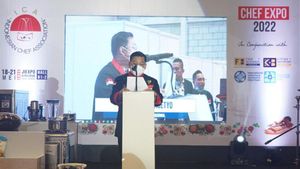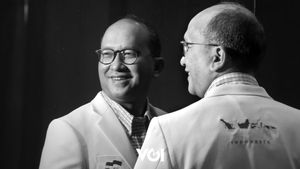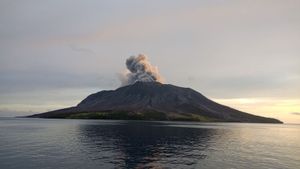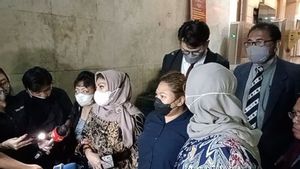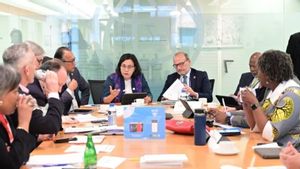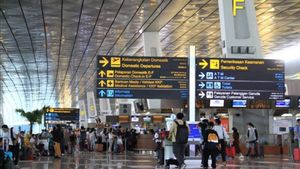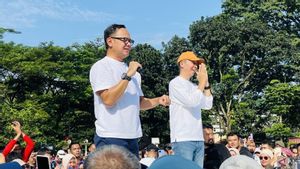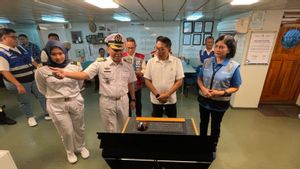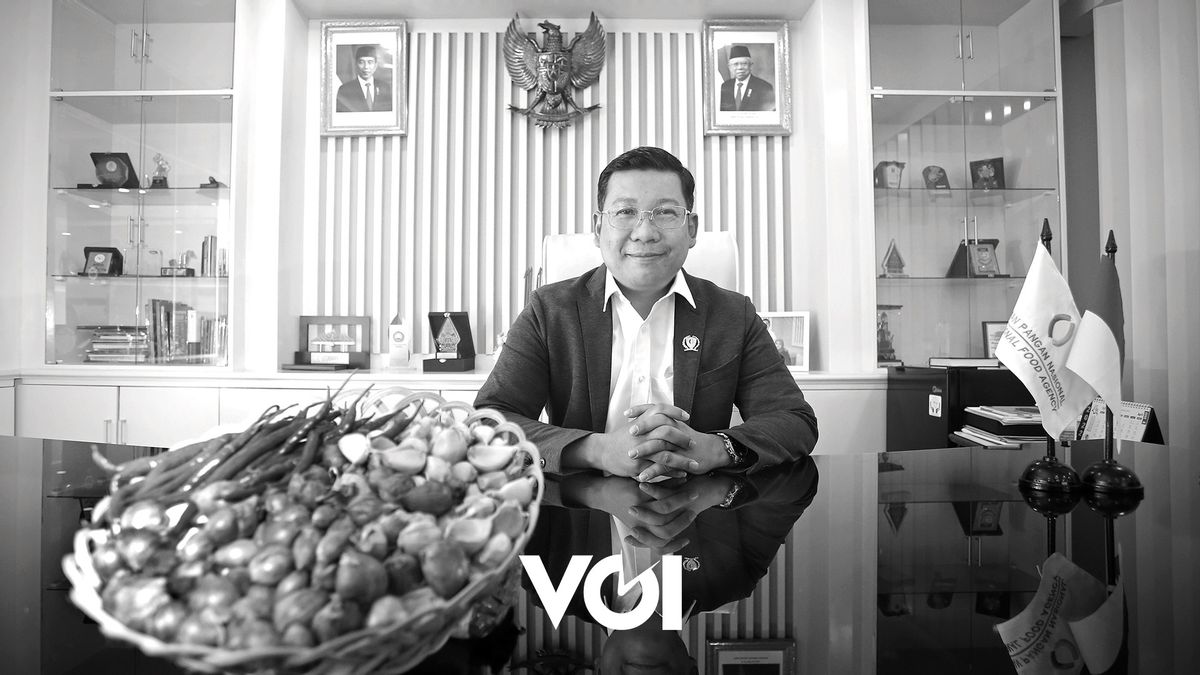
After a decade finally, an institution mandated by Article 129 of Law No. 18 of 2012 concerning Food was formed. Based on Presidential Regulation No. 66 of 2021, President Jokowi established and inaugurated Arief Prasetyo Adi as Head of the National Food Agency (NFA). According to Arief, the institution has three main tasks, including the policy on food imports.
***
President Jokowi inaugurated Arief Prasetyo Adi as Head of the National Food Agency on February 21, 2022, at the State Palace, Jakarta. In the institution and community of modern food and retail, he is not a new person. Arief served as the President Director of PT Food Station Tjipinang Jaya for the period 2015 – 2020. After that, he served as the President Director (Director) of PT Rajawali Nusantara Indonesia (RNI), the Holding Company for Food SOEs or ID Food.
There are three main tasks of the National Food Agency. The first is maintaining the availability and stabilization of food. Second, tackling food and nutrition insecurity. And the third is diversification of consumption and public safety. In the context of importing or not importing food ingredients, the National Food Agency will recommend to the relevant ministries.
Just two months after being inaugurated, Arief immediately stepped on the gas. Because he has to deal with real situations on the field. Ramadan and Eid al-Fitr are very crucial moments when most Indonesians perform Ramadan worship and celebrate Eid. Usually, the price of basic necessities, especially meat, will soar. Some even predict that fresh beef can be hoisted up to IDR 200,000 per kilogram.
What did the National Food Agency and related Ministries do to welcome the last Ramadan and Eid? The prediction of meat prices did not reach the previous prediction. “We have to prepare for the food availability of the 9 products mentioned earlier, including meat. If we look at the time at the beginning of Ramadan, it was said that the price of beef would be Rp. 200,000, nothing happened. Why didn't it happen because we prepared several plans before the peak season, before Eid," explained Arief, who had served as Deputy CEO, COO at PT Bez Retailindo, Paramount Enterprise International for the 2013-2015 period. He has also worked for modern retail companies such as PT Lotte Shopping Indonesia and PT Hero Supermarket Tbk., as well as Esteem Challenge, Sdn., Bhd Malaysia.
The issue of food imports has always been questioned. According to Arief, when Indonesia has not been able to meet its food needs independently from within the country, imports are a necessity. However, before importing, they coordinate with the relevant Ministries to determine the amount of material to be imported. And before imports are carried out, local production must have priority. "In addition, the timing of imports must also be right, do not import before the main harvest. This will make it difficult for farmers, prices can drop and their harvests cannot be absorbed in a reasonable price," he explained to Iqbal Irsyad, Edy Suherli, Savic Rabos, and Rifai from VOI who visited him at the National Food Agency (NFA) office. The Department of Agriculture Complex, Ragunan, Pasar Minggu, South Jakarta recently. Here is the full excerpt.

President Jokowi formed the National Food Agency, how is it different from Bulog, which has been the backbone of the government in food procurement in the country?
This National Food Agency was formed based on Presidential Regulation No. 66 of 2021. Then there are the authorities of 3 Ministries given the National Food Agency, the Ministry of Trade, the Ministry of Agriculture, and the Ministry of SOEs. From the Ministry of Trade, it concerns policy formulation, determining price stabilization, and also food distribution. Then the formulation of policies and the determination of the need for exports and imports of food. So it's not the import permit, but the food balance.
From the Ministry, the first is the determination of the amount of government food reserves. How much government food reserves will be managed by State-Owned Enterprises in that sector? Then the second is the policy and pricing of government purchases and discounts (discounted).
From the Ministry of BUMN is the minister who carries out government affairs in the field of state-owned enterprises, and authorizes the Head of the National Food Agency to decide on the assignment of the Bulog Public Company, in the implementation of national food policies. So there is no wedge between Bulog and the National Food Agency, but Bulog will later be under the National Food Agency. In Presidential Decree number 66 of 2021 it has been stated; that rice, corn, soybeans, consumable sugar, shallots, garlic, ruminant eggs, poultry meat, curly chilies, and cayenne pepper.
What is your program as Head of the National Food Agency?
The National Food Agency will have three deputies, the first for food availability and stabilization. Second, in the field of food insecurity and nutrition. The third is the area of consumption diversification and security. When inaugurated on February 21, 2022, as Head of the National Food Agency, at the State Palace by the President. After that, we immediately prepare for Eid. We have to prepare for the food availability of the 9 products mentioned earlier, including meat. If we look at the beginning of Ramadan, it was said that the price of beef would be Rp. 200,000, nothing happened. Why didn't it happen because we prepared several plans before the peak season before Eid.
The first is the mobilization of live cattle stocks from several areas; East Java and Central Java. Then we hasten the arrival of live cattle from Australia. The third is speeding up the arrival of frozen beef from Brazil and India.
We are talking about availability, which means that the first thing we do is prepare a food balance. In one year our demand for beef (beef and buffalo) is 706,000 tons. Every month the need is approximately 58,000 tons. Then we just have to prepare for the preparation for three months around 180,000 tons. As long as we can control it, we can take care of it all. Then there are also those that must be converted from live cows to beef or buffalo. During Eid yesterday everything was available so there was no problem with the price of meat. Indeed, there are those that reach 130,000 to 150,000 thousand per kilogram because there is an increase from the country of origin.
We also provide an alternative to consumers besides fresh beef, there is a cheaper Brazilian frozen beef for around Rp. 110,000. There is another cheaper 80,000-100,000 that is buffalo meat. We can educate the public that as long as we cannot fulfill our food needs domestically, this will be affected by prices in the country of origin, the rupiah exchange rate, distribution costs from the country of origin. That's from the side of the meat, the same thing can be parsed on the other 8 main ingredients.

What percentage of the meat needs can be met domestically?
Of the monthly requirement of 58,000 tons of beef, 90 percent more must be imported. Every time we import or fulfill this need, there must be a technical recommendation. The technical recommendation is from the technical ministry. Sugar means the Ministry of Industry, meat is in the Ministry of Agriculture, rice is from the Ministry of Agriculture, the import permit is from the Ministry of Trade. The task of the National Food Agency is to calculate the availability and price stabilization.
For the National Food Agency, regarding the availability, we determine the balance, so we have to prepare in the future, we have to decide if we want stock for 2 to 3 months. For products that can't be stored for a long time, technology is needed, such as onions, don't harvest them all together, the Minister of Agriculture is right that the second production is good, then we don't have the technology for storage.
I have asked the team to find out what technology can extend the shelf life of shallots and chilies. Don't let anyone throw away onions, chilies, eggs because the price is lower than the cost of production. So it must be comprehensive and who does what to make it clear.
How about the balance of needs for rice?
The annual demand for rice is around 20 million tons, while the production is 31.8 million tons. So we have a surplus of rice.
But why are there still rice imports?
What is permitted to import rice is rice specifically for the needs of hotels, restaurants and catering which cannot be grown in Indonesia. Such as basmati rice, and Japanese rice. Some Japanese rice can be produced domestically, the need for imports is immediately reduced. For our balance donkey, about 2.8 million tons must be imported.
SEE ALSO:
Egg prices had gone up before Eid, how about this?
The price of eggs must be above Rp. 26,000 per kilogram. If the price is below it means that the production cost is lower than the selling price of eggs. This the public must be educated. So that farmers do not lose. If you keep losing, who wants to be a farmer? If this continues, we will all be in trouble. Therefore, the selling price must be at a reasonable number. Last year's price cannot be the same as this year's, because there is an increase in production components. Likewise for other commodities such as rice and other staples.
How can imports of these foodstuffs protect domestic production?
The decision to import certain staples must be based on the balance of the annual needs and look at domestic production. The decision to import must be timely. Do not let imports be done before the harvest, or late imports so prices soar. The National Food Agency reminds every day about this issue so that food stakeholders can make the right decisions. So we are not anti-import, because it must be done based on domestic needs. But before importing domestic production must be a priority. Then there must be a profit strategy from the import of these foodstuffs to building local food. That's what we have to do together as a nation. When we are compared several food products from outside, such as wheat, we can find out how big our food security and sovereignty are.
The role of the National Food Agency is very strategic in recommending what foodstuffs should be imported, but in the regions, there is no representation, how to overcome this?
This is the most important thing to maintain the availability of food, so it doesn't have to be imported. How does the National Food Agency recommend that Kendal needs an animal feed, while Dompu, Sumbawa harvests corn. So Kendal's needs can be covered from Dompu and other areas.
The matter of the National Food Agency not being in the regions, it doesn't matter, there is no need to wastefully create a regional food agency. We will optimize the offices in 514 regencies/cities that deal with food with us. Heavy? No, we can do it together with friends in the area.
These are Arief Prasetyo Adi's Tips in Living Life, You Can Do It Too

Everyone has their own tips for living life, so does Arief Prasetyo Adi. And he is not stingy in sharing tips about his life and daily habits. Such as healthy living tips and how to achieve success. What he does can be an inspiration, because it can also be done anytime and anywhere.
“For us to live a healthy life, everything must be balanced in carrying out daily activities. In managing work, family, and society. The tips are endeavor, namely to work as well as possible, then isti'anah means praying to the Almighty. Last result, it is no longer our obligation. The result is already in the power of God, Allah SWT. Whatever the result, we put our trust in Allah. But if we have tried well, accompanied by prayers, I think the results will be good, God willing, "said the man who was born in Palangkaraya, Central Kalimantan, on 27 November 1974.
In order to have a better and healthier quality of life, Arief also does exercise and adequate rest. “Exercise is important to maintain health. One more thing, you don't need to think much, try to get enough sleep even though in reality you have enough sleep," he continued.
Equally important is family support. “Happy family is also important. Prayers from a mother if we still have a mother, prayers from a wife and children are also very important. Maintaining friendship is also important like today, you and the VOI team are also important to support a better quality of life," said Arief, who after SMAN 1 Jakarta continued his studies in Civil Engineering, finished 1998, and continued his Masters in Engineering, Management, Construction, completed 2000 at Atmajaya University Yogyakarta.
According to Arief, basically he likes badminton, swimming, basketball, futsal. However, with the increase in his busyness, his passion for various types of sports could not be realized. "But if I don't have enough time to do that, I usually go. Walk from one point to another in the office. Up and down from the 1st floor to the 4th floor and vice versa. The road from the office to the farm, from the office to the warehouse, to sweating and actually doing exercise,” he said.
It's not enough that diet, continued Arief, is also important and must be maintained for people who are over 40 years old. "Usually the metabolism of people over 40 years old has started to decline, so balance or eating patterns are our concern," he said.
However, Arief said, he is grateful that he doesn't have any food to abstain from. "Until now, thank God I'm not there, everything is still okay. Sea food, okay, meatballs okay, the important thing is not to overdo it," he said.
Although he can still eat anything, Arief knows himself. "So eat in moderation as needed, not what you want but what you need. If you want to eat ABCD, you want a lot. But if you only need how many grams of meat, vitamin ABC, how much fiber do you need, that's all. Between wanting and needing are two different things. So we have to be able to control ourselves,” he said.
Family

For Arief, family is important, not inferior to work. Then how to harmonize between the two? How to maintain quality time with family, children, and wife? “Work is important, family is also important. So making it all balance is a challenge in itself," he said.
He likens to a hard disk that must be sorted out its designation. “Like a hard disk there are sections for family, office, home, parents, and so on. All must receive proportional attention," he said.
Moreover, he continued, a public official like himself cannot be selfish and only be concerned with his own personal or family matters. Arief also gave understanding to his family members, that he as a public official also belongs to many people. "Khairunnas anfauhum linnas means that the best humans are those who can be useful for other humans," he said.
"Hopefully the conversation between me and VOI today will be beneficial for all food stakeholders, the community and there is education there, that's the best of the people," he continued.
Creative

As Head of the National Food Agency, Arief is to socialize so that the public consumes a variety of foods. “One of the tasks of the National Food Agency is to diversify consumption. So don't just eat fried rice, don't just eat tuna, there are lots of other fish. The education is that protein sources can be obtained from animals and plants. Nuts can be substituted, such as soybeans, tofu and tempeh. If you can't eat red meat, you can also eat white meat; fish or chicken," he explained.
To socialize the diversification of public consumption in food products, Arief invites public figures such as celebrity chefs. “We held a cooking demo so that the public could imitate at home. About mackerel, tofu, tempeh and various other types of food. What must be delivered to the public is that human needs are not only carbohydrates, but also protein, fat, and others. What should not be too much or too much," he said.
The National Food Agency, together with the Food SOE, the Indonesia Chef Association, said Arief, will hold a monthly socialization. "Hopefully it can be carried out every month, later we will also invite the media to be involved in this activity," he said.
Success, said Arief, is determined by oneself. To achieve success requires planning early on, since school. “Millennial friends, young people must make plans to achieve success. Focus on our strengths, don't focus on our weaknesses. Everyone has advantages that others do not have. What makes us different and useful to others," he said.
Creative people, continued Arief, are people who can value themselves and optimize it. “If we can be replaced by machines, it means that there is something wrong with us. But if we are not replaced by machines, then we will be of value. Because we have thoughts, we have minds. In the future, everything will be replaced by machines or robots, that's what makes us different. We have thoughts, ideas, and creativity," said Arief Prasetyo Adi while inviting millennials to have a career in the food industry for the sake of national food glory.
“The decision to import certain basic commodities must be based on the balance of the annual needs and look at domestic production. The decision to import must be timely. Do not let imports be done before the harvest, or late imports so prices soar. The National Food Agency reminds every day about this issue so that food stakeholders can make the right decisions.”
Arief Prasetyo Adi
The English, Chinese, Japanese, Arabic, and French versions are automatically generated by the AI. So there may still be inaccuracies in translating, please always see Indonesian as our main language. (system supported by DigitalSiber.id)



